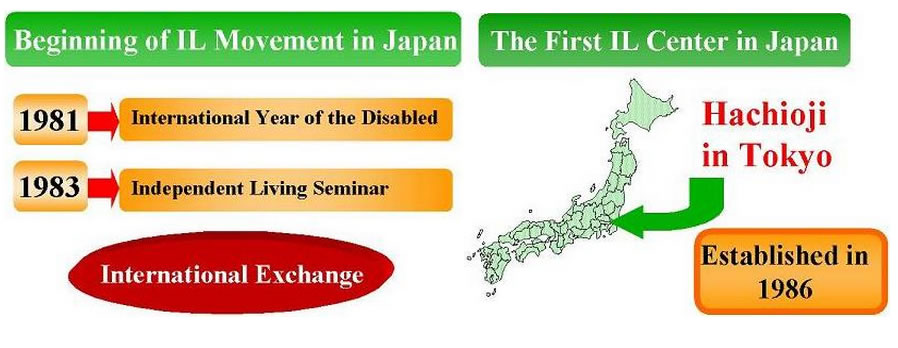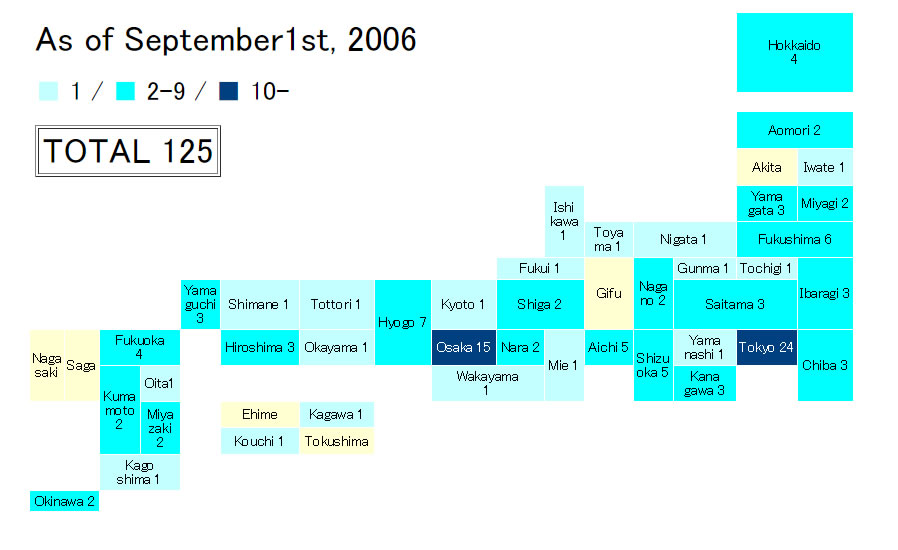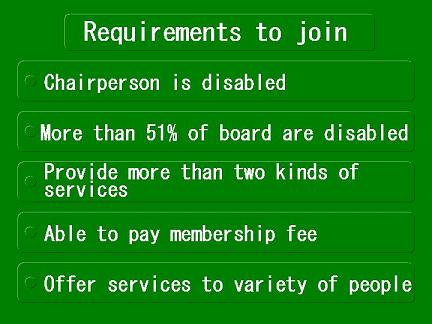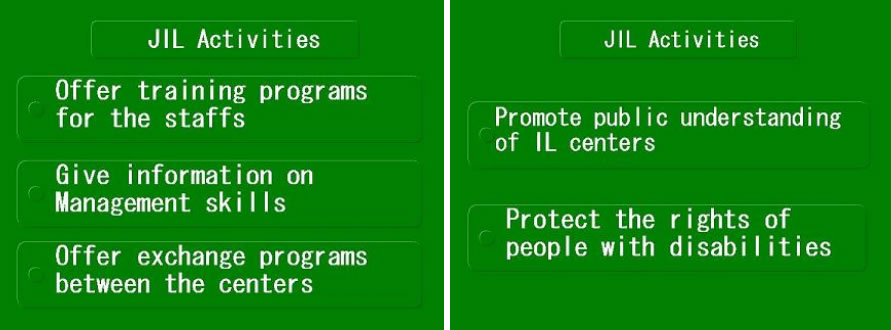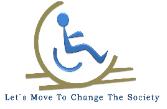About JIL
Japan Council on Independent Living Centers
Independent Living Centers are organizations in which disabled people, who have been recipients of services, take the initiative in providing services they really need to live in the community. With their activities at Independent Living Centers, they are not recipients of services any more but they are providers of social services. They have managed to create a work place where disabled people can make use of their expertise most effectively.
It became very popular for disabled people to exchange each other internationally since the International Year of Disabled People in 1981.
People with disabilities in Japan have visited USA and have learned a lot from leaders there. Especially the seminars in 1983, which several IL leaders in USA came and informed of IL Movement, were worthy of special mention. The IL movement had a big impact on disabled people in Japan. From the IL movement in U.S., they have learned that independence means the right to self-determination and that everyone has the right to live as he or she wishes. Learning from the activities of IL centers in U.S., they established Japanese style independent living centers.
The first independent living center established in Hachioji City, Tokyo in 1986 and since then the number of centers is increasing rapidly.
Historical Background of JIL
In 1990, the leaders of the several ILCs in Japan met to discuss how they could promote establishing more centers in the country. They concluded, at that time, two needed points as follows;
- The clear definition of ILCs
- Active appealing to ILCs around the country to participate in their effort to establish JIL
The leaders continued to discuss by putting their ideas together, and a year later in November 1991, they held the first general assembly of JIL joined by 10 ILCs throughout the country.
There are now 127 centers in Japan as of August 2006.
The number of members of JIL
ILC defined by JIL
An eligible organization for a regular membership has to satisfy those items below:
1. The executive director of the organization is an individual with disabilities
2. More than half of the decision-making committee member are people with disabilities
3. The organization offers advocacy services and information referral as its core services, as well as more than two services among the items below for unspecified recipients;
- Personal Assistant Referral
- Peer Counseling
- Housing Services
- Independent Living Skills Training
4. Able to pay membership fee
5. The organization offers services to the needed regardless of the nature of their disabilities
The purpose of JIL
JIL aims at supporting individuals with disabilities to be able to lead an independent life based on their own choice in a discrimination-free society by;
- Assisting the establishment of new ILCs
- Empowering ILCs to be widely acknowledged in the society for obtaining greater fund
Activities of JIL
Since JIL works as a liaison office among all the member of ILCs, not as a direct service agency, it does not provide individuals with services except for information referral. The activities of JIL are divided into two categories, which are for ILCs and the general public;
For ILCs;
- Recruiting and training staff of ILC
- Providing technical skills in making manuals, setting up seminars, arranging lectures for symposiums, and accepting and educating trainees from overseas for independent living
- Publishing newsletters for information exchange
For the general public;
- Promoting the philosophy of independent living and educating the general public for the better understanding ILCs throughout the country
- Conducting research on independent living and welfare system, and making proposals to government and communities based on the research results
- Advocacy
- Representing ILCs in applying for funds and international exchange, working as a liaison office between ILCs and other agencies.
Applying for a membership
JIL accepts membership application from ILCs only, (which satisfy the eligibility stated earlier) not from an individual or other agencies. Application forms from each ILC will be examined and screened by JIL board members, and will be divided into three categories; full member, associate member, and prospective member. For those individuals and non-ILC agencies that are interested in ILC activities have an opportunity to join as supporting members for financial contribution and obtaining newsletters and seminar information.
